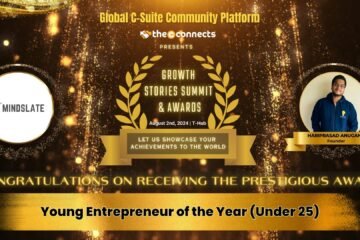Hyundai, founded in 1967 by Chung Ju-yung and headquartered in Seoul, South Korea, has evolved from a modest domestic automaker into a formidable global force in the automotive industry. Renowned for its commitment to quality and innovation, Hyundai offers a diverse range of vehicles—from fuel-efficient sedans and robust SUVs to cutting-edge electric and hybrid models. The company’s strategic focus on research and development has enabled it to incorporate advanced safety features, eco-friendly technologies, and smart connectivity into its products, setting new industry benchmarks. With expansive manufacturing capabilities and a strong international presence, Hyundai continues to push the boundaries of automotive design and engineering while maintaining competitive pricing and a customer-centric approach. This blend of innovation, efficiency, and strategic global expansion has solidified Hyundai’s reputation as a trailblazer in the automotive sector, making it a trusted brand for millions of consumers worldwide.
Company Information
Company Name: Hyundai
Founder Name: Chung Ju-yung
Founded Year: 1967
Headquarters: Seoul, South Korea
Products:
- Passenger cars (sedans, hatchbacks, SUVs)
- Commercial vehicles (trucks, buses)
- Electric and hybrid vehicles
- Auto parts and components
- Advanced automotive technologies
Services:
- Vehicle financing and leasing
- After-sales maintenance and service
- Connected car and mobility solutions
- Vehicle insurance services
- Customer support and roadside assistance
Competitors:
- Toyota
- Honda
- Ford
- Volkswagen
- General Motors
- Nissan
- Kia
- BMW
Company History & Growth
- Foundation & Early Years (1967-1980):
- Founded by Chung Ju-yung, Hyundai began as a small automobile manufacturer in South Korea.
- Initially focused on producing affordable, reliable vehicles for the domestic market.
- Expansion & Global Market Penetration (1980-2000):
- Expanded production capacity and entered export markets.
- Built manufacturing plants overseas and developed a global distribution network.
- Innovation & Technological Leadership (2000-2020):
- Invested heavily in research and development, leading to the launch of advanced safety features and eco-friendly vehicles.
- Embraced digital technologies and smart connectivity, aligning with global automotive trends.
- Modern Era & Future Prospects (2020-Present):
- Focused on sustainability, introducing electric and hybrid models to meet evolving consumer demands.
- Strategic partnerships and cutting-edge innovations are positioning Hyundai for long-term growth.
Challenges & Lessons
- Intense global competition in the automotive industry
- Economic downturns affecting consumer spending
- Recalls and quality assurance issues
- Shifting market demands toward greener mobility
- The need for continuous technological innovation
Innovations
- Development of advanced safety systems (e.g., collision avoidance, lane-keeping assist)
- Pioneering hybrid and electric vehicle technology
- Implementation of smart connected car features
- Investment in autonomous driving research
- Adoption of eco-friendly manufacturing processes
Achievements or Milestones
- Became one of the world’s leading automotive manufacturers
- Achieved global sales of millions of vehicles annually
- Expanded product portfolio with award-winning designs
- Successful entry into the electric vehicle market
- Established strategic alliances and joint ventures worldwide
Recognitions & Awards
- Multiple “Car of the Year” awards from international automotive bodies
- Accolades for innovation, safety, and design excellence
- Recognized for environmental sustainability and green technology
- High global brand rankings and customer satisfaction awards
- Numerous industry awards for technological advancements
Recap of the Company’s Success Story and Achievements
Hyundai’s journey from a modest South Korean venture to a global automotive powerhouse is a remarkable story of resilience, innovation, and strategic growth. Founded in 1967 by Chung Ju-yung, Hyundai began with a vision to produce reliable vehicles for a burgeoning market. Over the decades, the company rapidly expanded its horizons, establishing manufacturing facilities overseas and building a robust global distribution network. Hyundai’s commitment to quality and innovation led to the development of advanced safety features, eco-friendly technologies, and smart connectivity solutions that have redefined industry standards. Their strategic pivot toward electric and hybrid vehicles in recent years has not only positioned them at the forefront of sustainable mobility but also garnered multiple international accolades. With millions of vehicles sold annually, Hyundai has demonstrated its ability to adapt to changing consumer preferences and economic conditions while maintaining a competitive edge. The company’s history is punctuated by key milestones—from launching award-winning models to forging global partnerships—that underscore its dynamic growth and commitment to excellence. This success story exemplifies how visionary leadership, relentless innovation, and a deep understanding of market trends can propel a company to international prominence.
What Entrepreneurs Can Learn from This Company’s Success Story
Entrepreneurs can draw several invaluable lessons from Hyundai’s success story. First and foremost, the importance of vision and perseverance stands out—Hyundai’s founder, Chung Ju-yung, demonstrated how a clear vision, combined with unwavering determination, can turn a small venture into a global leader. The company’s willingness to adapt to market changes, invest in technology, and embrace innovation is another critical takeaway. Hyundai continuously evolved its product lineup to meet shifting consumer demands, particularly by investing in sustainable and connected technologies. This adaptability allowed them to stay ahead of competitors even during challenging economic cycles. Furthermore, strategic global expansion played a pivotal role in Hyundai’s growth, proving that tapping into international markets can provide significant opportunities for scaling. Entrepreneurs should also note the value of quality and customer satisfaction; Hyundai’s focus on reliability and continuous improvement has cemented its reputation worldwide. Lastly, forging strategic partnerships and joint ventures helped Hyundai access new technologies and markets, highlighting the power of collaboration. In essence, Hyundai’s journey teaches that a blend of innovation, resilience, strategic planning, and a customer-centric approach can drive long-term success and create a lasting brand legacy in any industry.



